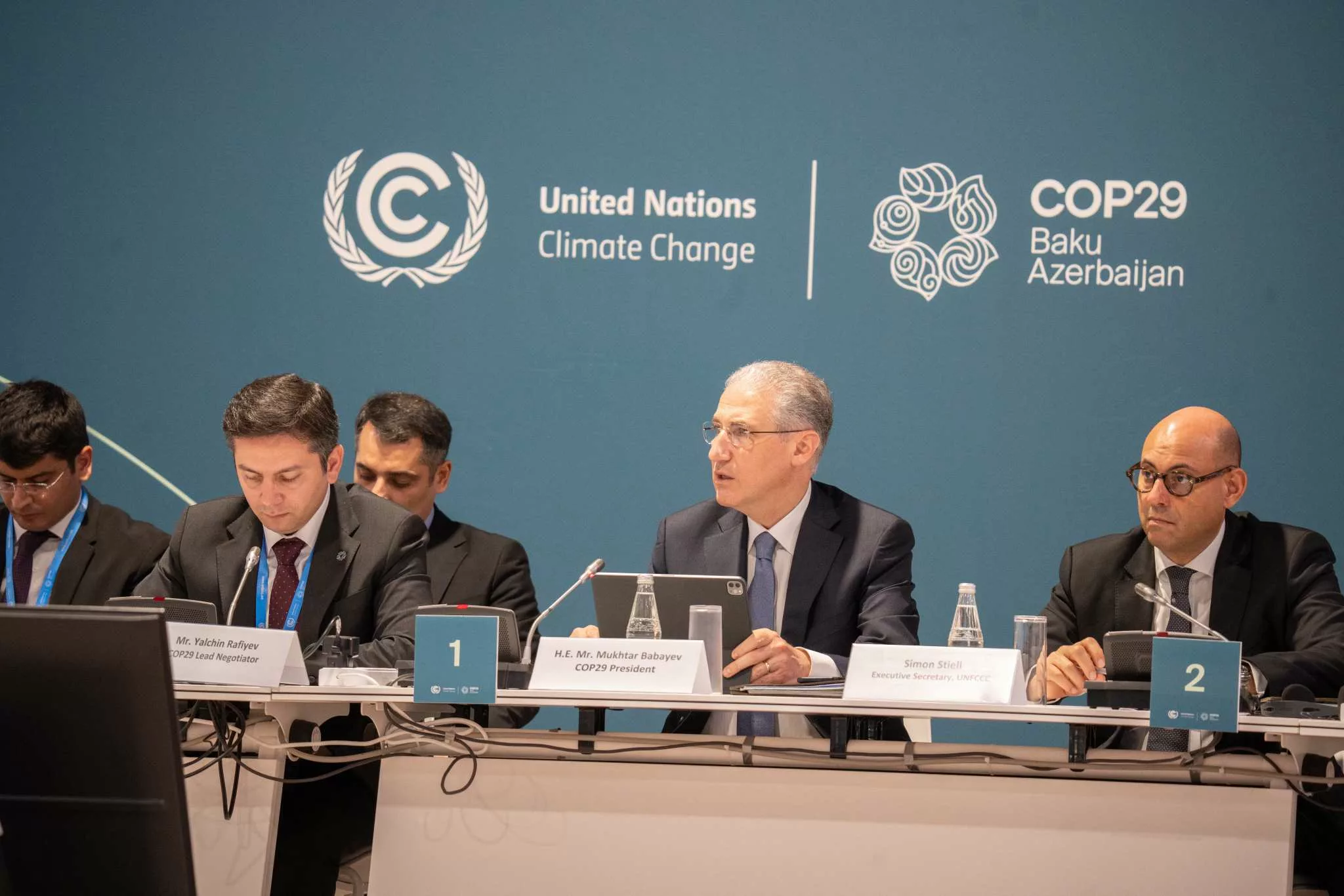|
Getting your Trinity Audio player ready...
|
In its report, CAN International argues that COP29 must ensure a just, inclusive, and effective new climate finance goal 2024 is a key year for climate finance due to the adoption of the new collective quantified goal (NCQG) at the 29th Conference of the Parties (COP29) of the United Nations Framework Convention on Climate Change (UNFCCC).
This new goal, which will replace the 100 billion goal dollars annually established in 2009, will be one of the main sources of finance for climate action in developing countries, including Latin America and the Caribbean.
The latter has not only been confirmed by the Secretary General of the United Nations, António Guterres, and the Executive Secretary of the UNFCCC, Simon Still, at the opening of COP29 and the World Leaders Climate Action Summit, but also by a large number of ministers from the Global South during the 6th High-Level Ministerial Dialogue on Climate Finance.
CAN Comments:
Almost a week since the start of COP29 in Baku, Azerbaijan, negotiations on the NCQG do not present significant progress. The most relevant proposal so far has been the one presented by the Group of 77 and China (G77+China), which brings together 134 developing countries, around the amount or quantum” of the NCQG: “at least 1.3 billion dollars per year from developed countries to developing countries with an important provision component (public resources) for adaptation, mitigation and loss and damage.” Beyond this, the negotiating groups and countries have been holding the same positions as in recent months.
Regarding the process, it is worth noting that most countries asked the NCQG co-facilitators to incorporate the visions that were not present as well as to simplify the “substantive framework”, a document that is serving as a basis for the negotiations. After removing one and a half pages out of a total of 34 from the original document, the Parties opted to have closed-door discussions (without observers) in what are known as informal informal sessions. These sessions have allowed for a more open debate on issues where countries have reached greater levels of consensus, such as access, transparency, and barriers to financing.
With the fifth day of COP29 already passed and just two days before the start of discussions at the ministerial level, we are still waiting for a new text to guide the negotiations that reflects, at least, some preliminary agreements between the Parties. Elevating these discussions to the ministerial level without these prior agreements could prove counterproductive, as ministers often lack the necessary technical knowledge of the complexities of the NCQG.
In this context, WE urgently call on negotiators to consider including the following points in the decision on the new objective:
- The core of the NCQG must be based on the provision of public finance, which is essential to reach those spaces where the private sector cannot or is not interested in reaching, as is often the case in adaptation. And whose allocation should be given mainly in the form of donations and concessional instruments, especially for adaptation, avoiding more debt to countries.
- The NCQG must ensure that the gaps between mitigation and adaptation finance are closed, by increasing adaptation finance and contributing to loss and damage finance, as resources from the Fund for Responding to Loss and Damage continue being insufficient to address the magnitude of the challenge.
- The NCQG must be based on an amount that, although it will not cover all finance needs, must address the most important, immediate and transformative ones. The amount must consider the needs valued at least 5,036-6,876 trillion dollars for the implementation ofnationally determined contributions until 2030 according to the “Second Needs Determination Report” developed in 2024 by the Standing Committee of Finance of the UNFCCC.
- The NCQG should promote equity in the distribution of finance, based on the needs and priorities of developing countries. As well as promoting the inclusion of local communities and Indigenous Peoples, women and youth, among other groups in vulnerable situations, in the corresponding decision-making processes.
- The NCQG must use transparency arrangements based on those already in place, especially the enhanced transparency framework established by Article 13 of the Paris Agreement, in the review of which adjustments can be made for the integration of the NCQG, avoiding additional burdens on countries.
At COP29, we demand well-deserved payment for all the Damages and Losses that our communities have suffered. It is an issue of obligations and responsibility for transboundary environmental damage.
We must demand public, accessible, and transparent financing provisions for Damages and Losses. “It is necessary that the first week of COP29 ends with significant progress regarding the definition of the new climate finance goal. The countries of the Global South need a goal that is ambitious enough and with quality elements to be able to adequately address the impacts of climate change, avoid greater and worse loss and damage, and carry out a just transition.” “We cannot postpone a decisive decision on the NCQG. Three years of technical work have already passed. This is the time to adopt a decision that truly considers the needs of developing countries and demonstrates the ambition of developed countries that is being demanded of developing countries.
Not having a final decision on the new quantified goal of collective climate finance is more than a diplomatic tension: it is a systemic risk to confidence in the multilateral climate system. We are not here fighting for charity but for the possibility of a fair economy aligned with 1.5 degrees and a final decision that allows climate adaptation to be financed fairly.
Breaking disciplinary silos and connecting parallel processes, such as the establishment of the new goal at COP29 and the proposals for progressive tax reforms discussed at the G20, is key to ensuring the mobilization of the resources necessary to finance a climate transition that ensures Human Rights in the Global South.”






